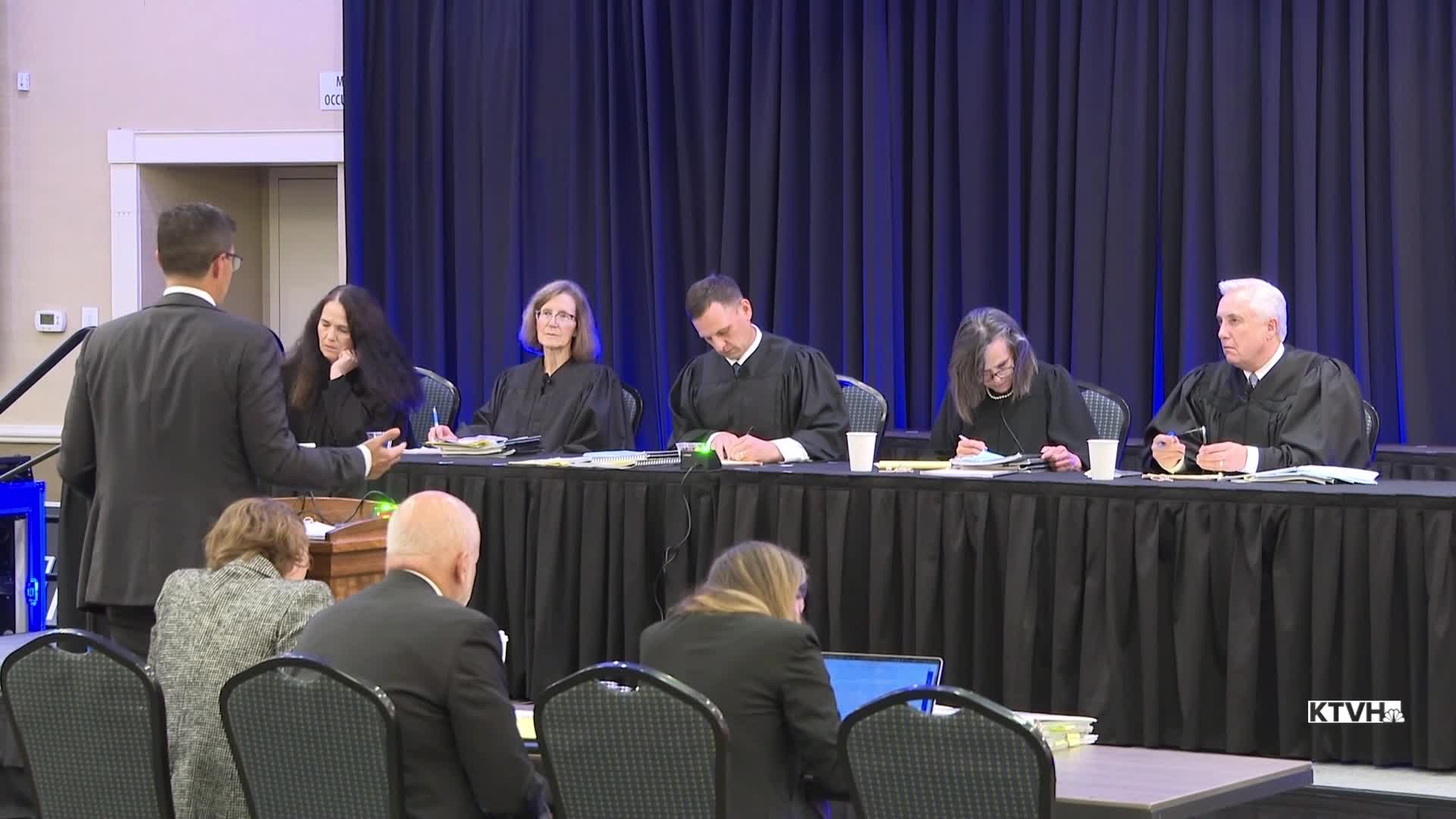HELENA — It happens every two years: the Montana Legislature passes a bill, the governor vetoes it, and the bill dies. But in one case after the 2023 legislative session, a bill in that situation got tied up in a months-long legal battle that has finally reached Montana’s highest court.
On Friday morning, the Montana Supreme Court heard oral arguments in the long-running case centering on Senate Bill 442. As they do several times a year, justices took this hearing outside their normal chambers – holding it at the Delta Hotels Helena Colonial during the State Bar of Montana’s annual meeting.
(Watch the video to hear some of the arguments in Friday's hearing.)
SB 442, sponsored by then-Sen. Mike Lang, R-Malta, would have redirect some state marijuana tax revenues to help fund county rural road projects and increase funding to wildlife habitat improvement projects. It initially passed the Legislature with 130 out of 150 lawmakers in support, but Gianforte vetoed it, citing technical concerns with how it was written and saying it was inappropriate to use ongoing state funding for a local responsibility like roads.
Because Gianforte’s veto came right around the time the Senate adjourned, there were disputes over whether lawmakers had lost their opportunity to try to override the veto.
Conservation groups and the Montana Association of Counties sued, claiming the Legislature never had a legitimate chance to attempt a veto override. In the end, District Court Judge Mike Menahan, of Helena, ordered the Secretary of State to conduct an override poll by mail – the standard procedure if a veto comes after the legislative session ends.
Many Republican lawmakers protested Menahan’s decision as judicial overreach and refused to participate in the poll. Only 65 lawmakers ended up supporting the override – well short of the at-least 100 that would have been required.
Now, SB 442 is dead. The marijuana revenues that the bill sought to redistribute were reshuffled anyway, when the 2025 Legislature passed another proposal – House Bill 932, this one getting Gianforte’s support.
But while the bill itself is no longer at issue, attorneys for Gianforte and for Secretary of State Christi Jacobsen still want the Supreme Court to step in and throw out the precedent Menahan established.
“The Secretary of State remains in this position where regardless of what is said in statute, we have to obey that district court's constitutional interpretation,” said Austin James, chief legal counsel for the Secretary of State’s Office. “And the record also establishes that there are other bills that are in the same scenario.”
State attorneys argued outside groups shouldn’t have been allowed to assert privileges for the Legislature that the Legislature wasn’t claiming itself. They said this issue was a “political question” the judiciary shouldn’t have stepped into, and that state law leaves it up to the Legislature to determine how it handles the veto override procedure.
The groups that sued over SB 442’s veto argued the case is now moot, saying that after the Legislature adopted a new law adjusting how it handles vetoes at the end of the session, the issue that came up in this case isn’t going to happen again. Even if the court didn’t agree, they argued Menahan’s action was appropriate.
“The people of Montana did not want the governor to have undue political power at the end of the session to prevent the Legislature from being allowed to override vetoes,” said Rylee Sommers-Flanagan, an attorney representing the conservation groups.
During the hearing, some of the justices questioned whether it had been proper for Menahan to order officials to conduct a poll.
“How can the district court legitimately say, ‘Well, this situation created an anomaly, then we need to add something to the Constitution’?” asked Justice Jim Rice.
“Your honor, I would respectfully disagree that there's any addition to the Constitution here,” Sommers-Flanagan responded.
As is typical, the court didn’t take any immediate action after hearing oral arguments.



